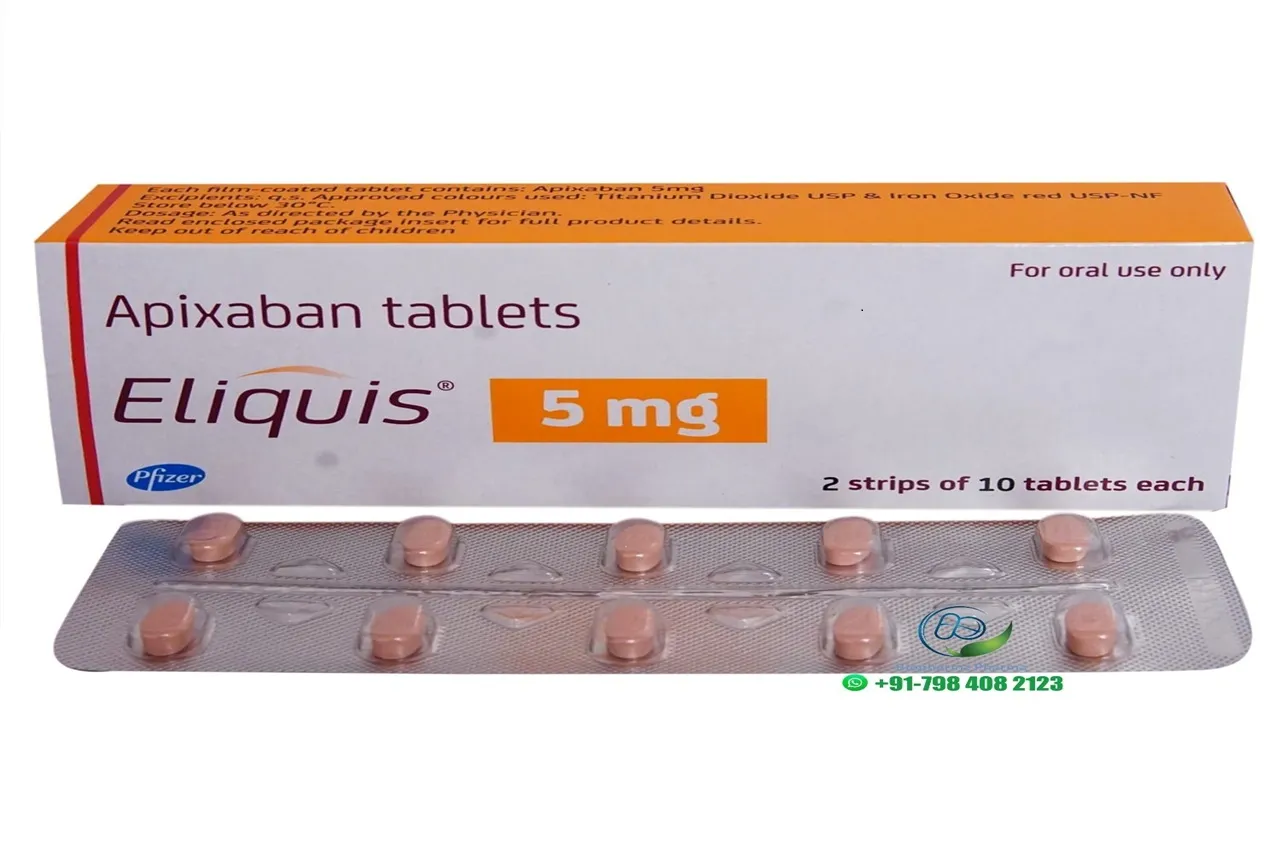
A New Approach to Affordability and Access
The BMS (Bristol Myers Squibb) -Pfizer Alliance has announced the launch of a new direct-to-patient program for Eliquis® (apixaban), a widely prescribed anticoagulant medication. This initiative, delivered through the Alliance’s Eliquis 360 Support platform, marks a major step toward improving medication affordability and accessibility, especially for uninsured, underinsured, or self-pay patients.
The new program offers a streamlined, transparent pathway for eligible patients in the United States to access Eliquis at a significantly reduced cost—more than 40% below the current list price. By allowing patients to purchase their medication directly, the initiative bypasses traditional distribution channels and lowers barriers to treatment.
Program Details and Launch Date
Starting September 8, 2025, eligible patients who have a valid prescription for Eliquis will be able to purchase the medication directly through the Eliquis 360 Support program. The discounted medication will be shipped to patients’ homes across all 50 states and Puerto Rico, ensuring convenience and nationwide reach.
In addition to the cost savings, the program offers complete transparency in pricing, providing patients with a clear understanding of their financial responsibilities. This is especially beneficial for those facing high out-of-pocket costs or coverage gaps in their insurance plans.
Commitment to Affordability and Innovation
“The BMS-Pfizer Alliance is committed to increasing patient access and affordability, which is why we are launching this direct-to-patient offering for Eliquis,” said Dr. Christopher Boerner, Board Chair and CEO of Bristol Myers Squibb. “Eliquis is the nation’s number one prescribed oral anticoagulant that provides important benefits to patients and the healthcare system. This program passes more savings directly to patients and demonstrates our continued focus on identifying innovative solutions that foster the best outcomes for each individual while prioritizing access to care.”
The decision to launch a direct-to-patient model underscores the Alliance’s ongoing efforts to address systemic affordability issues in the U.S. healthcare landscape. It reflects a shift toward more patient-centric models of care that prioritize accessibility, cost transparency, and convenience.
What Is Eliquis®?
Eliquis® (apixaban) is a prescription oral anticoagulant used to reduce the risk of stroke and blood clots. It works by blocking Factor Xa, a key protein involved in blood clot formation. It is most commonly prescribed to patients with atrial fibrillation (AFib) not caused by a heart valve problem, as well as for the treatment and prevention of deep vein thrombosis (DVT) and pulmonary embolism (PE).
Since its launch, Eliquis has become a cornerstone in the treatment of clot-related conditions. More than 15 million Americans have been prescribed Eliquis, and studies show that for every 100,000 patients treated, the medication has contributed to an estimated $3 billion in total healthcare cost savings. These savings are primarily due to reductions in hospitalization, long-term rehabilitation, and complications from untreated blood clots.
How Eliquis 360 Support Works
Eliquis 360 Support is a comprehensive patient assistance and education platform designed to help users understand their prescription insurance coverage and manage their treatment journey. It includes educational resources, medication guidance, and access to financial assistance options.
With the new direct-to-patient program, the platform will serve as a centralized hub for eligible patients to order their medication at a discounted price. The support site is available at https://www.eliquis.bmscustomerconnect.com/support, where patients can find detailed eligibility criteria, FAQs, and order instructions.
U.S. Indications for Use
Eliquis is approved in the U.S. for the following uses in adults:
- To reduce the risk of stroke and blood clots in people with atrial fibrillation not caused by a heart valve problem.
- To treat DVT (deep vein thrombosis) and PE (pulmonary embolism).
- To reduce the risk of recurrence of DVT and PE following initial treatment.
- To prevent DVT and PE in patients who have undergone hip or knee replacement surgery.
For pediatric use, Eliquis is approved for:
- Treating venous thromboembolism (VTE) in children from birth who have completed at least five days of initial anticoagulant treatment.
- Reducing the risk of recurrence in pediatric patients.
Note: Eliquis is not recommended for children weighing less than 5.7 pounds (2.6 kg).
Important Safety Information
While Eliquis provides critical health benefits, it also carries risks and should be taken with care. Patients are strongly advised to speak with their healthcare provider about potential side effects and drug interactions.
Increased Risk of Blood Clots if Stopped
Stopping Eliquis suddenly can increase the risk of stroke or other serious blood clots. Patients should only discontinue use under medical supervision.
Risk of Bleeding
Eliquis can cause serious or fatal bleeding due to its mechanism of action as a blood thinner. The risk is higher when used alongside other medications that affect bleeding, such as:
- NSAIDs (e.g., ibuprofen)
- Aspirin
- Warfarin
- Clopidogrel
- SSRIs and SNRIs
- Heparin
Patients may experience symptoms such as:
- Frequent or severe bruising
- Prolonged bleeding
- Red or black stools
- Vomit that looks like coffee grounds
- Blood in urine
- Severe headaches or dizziness
Medical help should be sought immediately if any of these symptoms occur.
Spinal/Epidural Hematoma Risk
Spinal or epidural anesthesia, spinal punctures, or placement of epidural catheters while taking Eliquis can lead to hematomas that may cause long-term or permanent paralysis. The risk increases with the use of blood thinners, history of spinal trauma, or spinal surgery.
Not for Use in Certain Conditions
Eliquis is not intended for patients with:
- Artificial heart valves
- Antiphospholipid syndrome (APS), especially with positive triple antibody testing
- Active or abnormal bleeding
- Allergic reactions to Eliquis or its ingredients
Special Populations
Patients with liver or kidney issues, pregnant or breastfeeding women, and those planning to become pregnant should consult their doctor before taking Eliquis. The drug may increase the risk of bleeding during pregnancy and is not recommended during breastfeeding.
Dosage and Administration
Eliquis should be taken exactly as prescribed by a healthcare provider. It is typically taken twice daily, with or without food. Patients should not alter their dosage without medical guidance and should refill prescriptions before running out.
Pediatric Use Instructions
In children, proper dosing is critical. If a child vomits or spits up within 30 minutes of taking Eliquis, the dose should be repeated. If this occurs after 30 minutes, the dose should not be repeated. Always consult a pediatrician in such cases.
Looking Ahead: A Model for Other Therapies?
This direct-to-patient program could serve as a blueprint for other high-cost medications seeking to balance accessibility and sustainability. By removing intermediaries and delivering medications directly to patients, pharmaceutical companies have the opportunity to create more transparent, patient-focused systems.
As the cost of prescription drugs continues to be a major concern in the U.S., initiatives like the one from the BMS-Pfizer Alliance may help reshape the landscape of patient access and affordability.
About Bristol Myers Squibb: Transforming Patients’ Lives Through Science
At Bristol Myers Squibb, our mission is to discover, develop and deliver innovative medicines that help patients prevail over serious diseases. We are pursuing bold science to define what’s possible for the future of medicine and the patients we serve. For more information, visit us at BMS.com and follow us on LinkedIn, X, YouTube, Facebook and Instagram.
About Pfizer: Breakthroughs That Change Patients’ Lives
At Pfizer, we apply science and our global resources to bring therapies to people that extend and significantly improve their lives. We strive to set the standard for quality, safety and value in the discovery, development and manufacture of health care products, including innovative medicines and vaccines. Every day, Pfizer colleagues work across developed and emerging markets to advance wellness, prevention, treatments and cures that challenge the most feared diseases of our time.
Consistent with our responsibility as one of the world’s premier innovative biopharmaceutical companies, we collaborate with health care providers, governments and local communities to support and expand access to reliable, affordable health care around the world. For 175 years, we have worked to make a difference for all who rely on us. We routinely post information that may be important to investors on our website at www.Pfizer.com. In addition, to learn more, please visit us on www.Pfizer.com and follow us on X at @Pfizer and @Pfizer News, LinkedIn, YouTube and like us on Facebook at Facebook.com/Pfizer.
About the Bristol Myers Squibb-Pfizer Collaboration
The Bristol Myers Squibb-Pfizer Alliance (the Alliance) is committed to driving education and awareness about atrial fibrillation and deep vein thrombosis (DVT) and/or pulmonary embolism (PE). With long-standing cardiovascular leadership, global scale and expertise in this field, the Alliance strives to implement global, research-driven approaches to illuminate and address the unmet needs around strokes related to non-valvular atrial fibrillation, which are often fatal or debilitating.
Through collaborations with non-profit organizations, the Alliance aims to provide patients, healthcare professionals and decision makers with the information they need to understand and take appropriate action on risk factors associated with stroke and other cardiovascular conditions.







